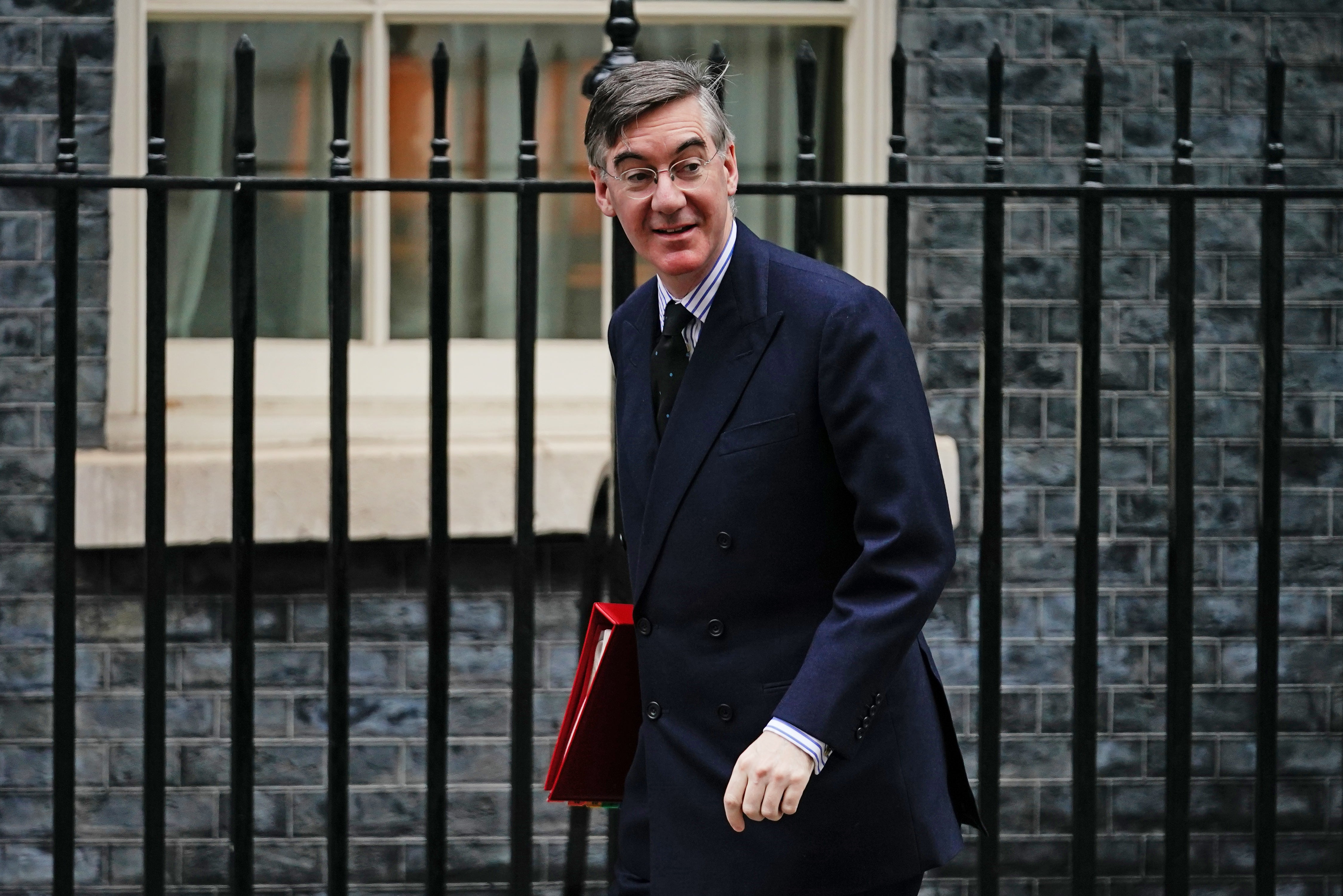UK has no need to follow EU rules on car speed limiters, says Rees-Mogg
The minister also told MPs that the PM’s handling of the Ukraine crisis is an example of a Brexit benefit.

Your support helps us to tell the story
From reproductive rights to climate change to Big Tech, The Independent is on the ground when the story is developing. Whether it's investigating the financials of Elon Musk's pro-Trump PAC or producing our latest documentary, 'The A Word', which shines a light on the American women fighting for reproductive rights, we know how important it is to parse out the facts from the messaging.
At such a critical moment in US history, we need reporters on the ground. Your donation allows us to keep sending journalists to speak to both sides of the story.
The Independent is trusted by Americans across the entire political spectrum. And unlike many other quality news outlets, we choose not to lock Americans out of our reporting and analysis with paywalls. We believe quality journalism should be available to everyone, paid for by those who can afford it.
Your support makes all the difference.Brexit opportunities minister Jacob Rees-Mogg said the UK needs to stop comparing itself with the EU when it comes to setting regulations, as he hit out at the suggestion of putting speed-limiters in British cars.
Mr Rees-Mogg criticised a suggestion, first reported in the Daily Telegraph, that speed limiters could be fitted to new cars under Government plans to fall in line with a Brussels ruling.
Giving evidence to the Commons European Scrutiny Committee, the Cabinet minister said: “I see we are thinking – and I better be careful, because this may be Government policy, so I don’t want to upset collective responsibility too much – of putting speed limiters on people’s cars because the EU is doing it.
I don’t care what the EU does any more than I care what the United States does or Singapore does
“Because the EU is doing it is no argument for doing anything any more and we want to get away from this mentality of ‘Are we diverging or are we not diverging’.”
In its report, the Telegraph said ministers were set to announce a consultation on a range of vehicle safety measures that could potentially reduce engine power or set off alarms if drivers exceed the speed limit.
But Mr Rees-Mogg told MPs the UK needs to look beyond the “narrow” approach taken by the EU when it came to regulations.
“I’m afraid I think we must get away from this idea of divergence,” he said on Wednesday.
“I don’t care what the EU does, any more than I care what the United States does or Singapore does.
“These are separate regulatory regimes and we don’t always want to be looking over our shoulders saying, ‘The EU is doing this, so perhaps we should do it too’.”
Asked later in the session if the speed-limiter idea was in the Government’s thinking, he replied: “It is not a policy that has received collective agreement.”
He added: “You can read between the lines on my views on this from what I said earlier.”
The Department for Transport, asked about the car speed limiter reports when they emerged last week, batted away suggestions it was planning to introduce them.
According to Mr Rees-Mogg, one way in which Brexit has already helped speed up Government policy-making has been seen in the UK’s backing for Ukraine during the conflict with Russia.
“I would argue that our policy in relation to Ukraine would not have been possible had we been bound by the doctrine of sincere co-operation in the European Union,” he told the committee.
“If you want a monument of our freedom at the moment, it is the extraordinary leadership the Prime Minister has given over Ukraine, which I think he simply would not have been able to do had we had to go along with and exercise our rights and our influences through a combined EU mechanism.”
Discussing changes he was bringing about, Mr Rees-Mogg also confirmed the Government would introduce a new data protection bill, as he criticised the current “extraordinarily onerous” situation, which he said deterred “against keeping historic records”.
“We have a system that is deeply unsatisfactory and a huge burden on SME’s (small and medium-sized enterprises),” the North East Somerset MP said.
Giving other examples of where regulation could be slimmed down, he said other countries had food regulations that upheld high standards but did not “make it completely impossible for farmers”.
He also said changes being introduced as part of the Procurement Bill meant companies applying for Government contracts would only have to write their name and address once, rather than up to 70 times.
Announcing that a director for the Brexit Opportunities Unit had been appointed this week, Mr Rees-Mogg said Chris Carr will head up the organisation, having moved from the Department for Business, Energy and Industrial Strategy (Beis).
Mr Rees-Mogg, who this week stoked controversy among civil service unions by calling for public servants to return to the office after home-working during the coronavirus pandemic, told MPs: “You’ll be glad to hear he’s actually in the office, which is reassuring.”